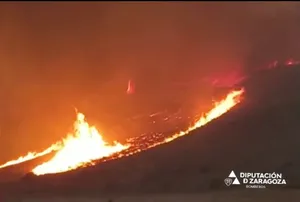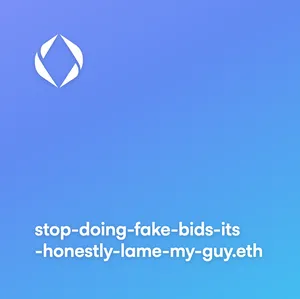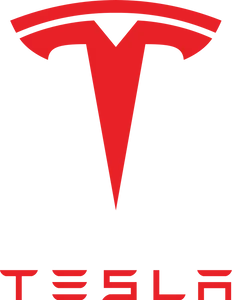Founder of My Big Coin convicted of $6 million crypto fraud
- "My Big Coin Founder Convicted of Cryptocurrency Fraud Scheme", U.S. Attorney's Office of the District of Massachusetts
Former Coinbase product manager charged with tipping off co-conspirators about tokens that were about to be listed on the exchange
Wahi allegedly used his access to highly confidential information around which cryptocurrency tokens would be listed and when the news would be announced to tip off his brother and friend, who would then use multiple anonymous Ethereum wallets to purchase large quantities of the token before the prices spiked on the news. According to the press release, the two took positions in at least six tokens before Coinbase announced in April 2022 that they would be listing them on the exchange. The DoJ said that the scheme had generated approximately $1.5 million in gains. The DoJ acknowledged a "Twitter account that is well known in the crypto community", likely referring to Cobie, who identified the suspicious activity.
The DoJ also reported that when Coinbase's director of security operations contacted Wahi in May asking him to attend a meeting regarding the suspicious activity, Wahi purchased a one-way flight to India in an attempt to flee the country. He was stopped by law enforcement.
The U.S. Attorney for the Southern District of New York stated in the press release, "Today's charges are a further reminder that Web3 is not a law-free zone... fraud is fraud is fraud, whether it occurs on the blockchain or on Wall Street."
Each of the charges (four against Wahi, two each against his brother and friend) carried a maximum sentence of 20 years. In May 2023, Ishan Wahi was sentenced to two years in prison; Nikhil was sentenced to ten months in prison.
- "Three Charged In First Ever Cryptocurrency Insider Trading Tipping Scheme", U.S. Department of Justice
- Indictment
Blockchain.com lays off 25% of its employees
Blockchain.com also announced that they would close their Argentina-based offices, cancel plans to hire in several countries, and cut executive salaries.
Blockchain-powered carbon offset company Land Life starts 35,000-acre forest fire in Spain
The wildfire is reportedly the second fire in that same location attributed to the company in the last month. Spain has been facing devastating fires brought on by record-breaking temperatures and drought, and Land Life acknowledged that contractors should not have been working during the heat wave due to the extreme fire risk.
- "La empresa forestal que originó el fuego de Ateca ya causó otro hace un mes en el mismo lugar", Heraldo (in Spanish)
- "Land Life Company Raises €3.5 million in Series A Funding", press release
- Comunicado - Incendio Bubierca, Land Life (in Spanish)
NFT collector Franklin loses 100 ETH (~$150,000) in a joke gone wrong
Based on a follower's suggestion, he created the ENS domain stop-doing-fake-bids-its-honestly-lame-my-guy.eth and placed a 100 ETH bid on it. To his surprise, another person came along and offered him 1.9 ETH (~$2,900). Apparently excited to receive a sizeable offer for a gag NFT, franklinisbored accepted the offer and took to Twitter to write about his good fortune: "Well this is the most surprising 1.891 ETH I have ever made. I owe it all to #ENS and @gweiman_eth's creative idea. #Marketing101".
Meanwhile, he had forgotten to cancel his joke 100 ETH offer, which remained active. The new buyer accepted the offer and sold the NFT back to him, pocketing 98 ETH in the process. Franklinisbored wrote on Twitter, "I was celebrating my joke of a domain sale, sharing the spoils, but in a dream of greed, forgot to cancel my own bid of 100 ETH to buy it back. This will be the joke and bag fumble of the century. I deserve all of the jokes and criticism." He also sent the 1.9 ETH back to the other person, with a message asking them to reverse the transaction. The other person replied, "No, thank you for the money though."
- Tweet by franklinisbored
- Token on Etherscan
Tesla announces they sold 75% of their Bitcoin
In their report, Tesla stated that "Conversions in Q2 added $936M to our balance sheet." Assuming this is all Bitcoin, this suggests Tesla sold at around $28,900 — a 7–10% decrease from their buy price. The company stated in a shareholder presentation that the "Bitcoin impairment" had damaged the company's Q2 profitability.
This is grim news for some crypto enthusiasts, a group that overlaps considerably with Tesla and Musk superfans. Musk's Bitcoin purchases helped to convince many new people to buy in, and the news of Tesla's decision caused a sharp 2.5% decrease in Bitcoin prices.
Zipmex indefinitely halts withdrawals
According to CoinDesk, Zipmex faces an enormous loss on a loan of $100 million worth of assets to Babel Finance, an exchange that suspended withdrawals in mid-June and is now hiring restructuring attorneys.
On July 21, the Thai Securities and Exchange Commission sent a letter to Zipmex asking them to explain their decision, requesting details on customer assets under custody and where they were invested — particularly around any assets deposited in Celsius or Babel Finance.
- "Crypto exchange Zipmex halts withdrawals due to 'volatile market conditions'", The Block
- Tweet by Zipmex
- "Zipmex a Victim of Crypto Contagion as Concerns Grow Over Babel Loan: Sources", CoinDesk
- "ก.ล.ต. ให้ บริษัท ซิปเม็กซ์ จำกัด (Zipmex) ชี้แจงข้อมูลเพิ่มเติมเกี่ยวกับทรัพย์สินของลูกค้า", Thai SEC (in Thai)
Minecraft announces they will not support or allow NFTs
- "Minecraft and NFTs", Minecraft blog
- "Minecraft", Wikipedia
Korean authorities raid seven cryptocurrency exchanges in relation to Terra investigation
$20 million taken from Raccoon Network and Freedom Protocol in likely rug pull
Raccoon Network is a metaverse project. Freedom Protocol invested in the project in late June, and announced they would be working together. Freedom Protocol is a defi project that advertises an 183,394.2% APY "compounded by scientific calculations".
- Tweet by PeckShieldAlert
- Press release by Raccoon Network









